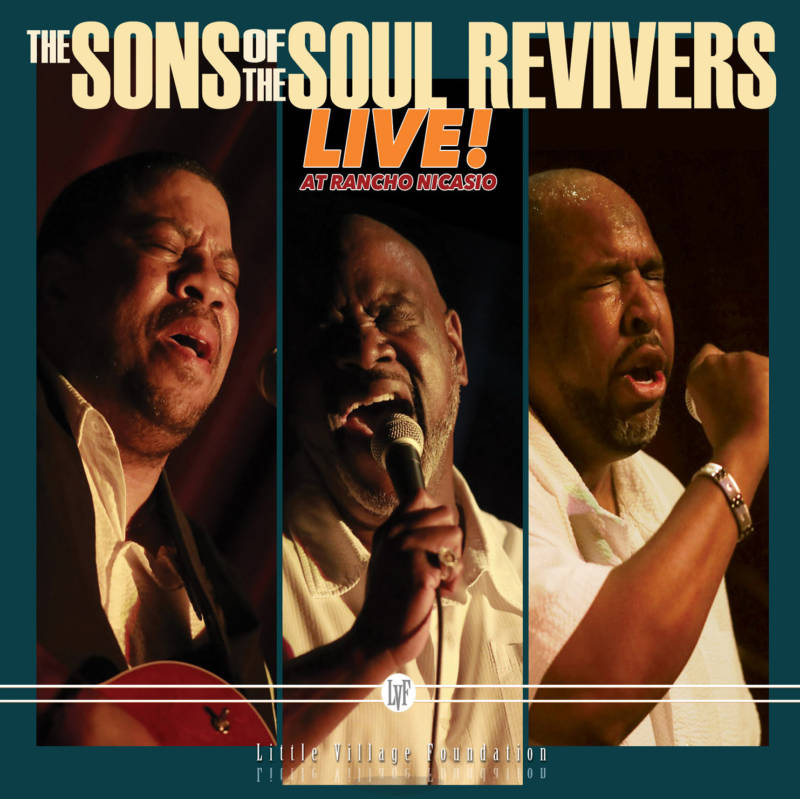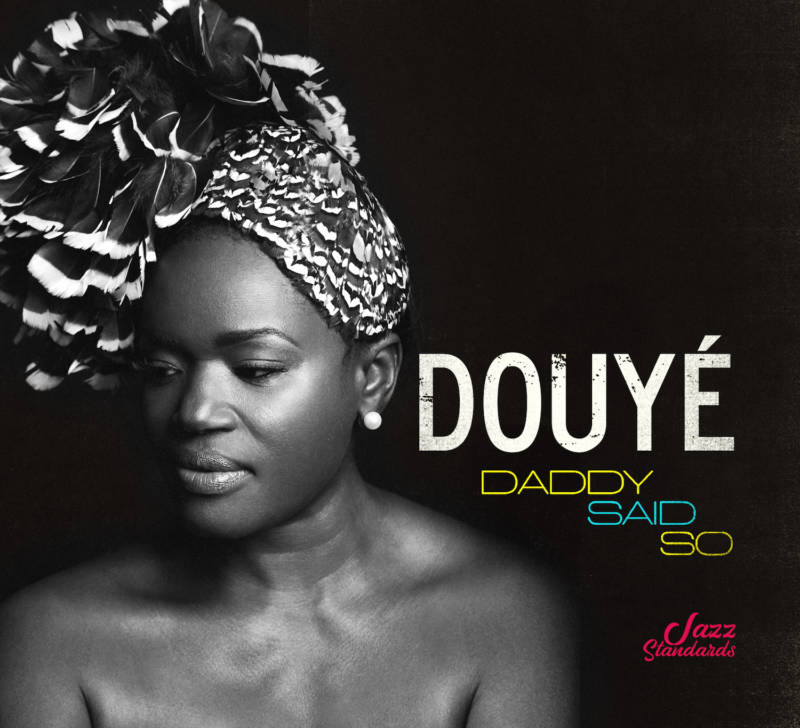Douyé mines the L.A. scene on “Round Midnight” and “In A Sentimental Mood,” which feature pianist John Beasley’s savvy arrangements and first-call players like saxophonist Bob Sheppard, bassist John Clayton and drummer Roy McCurdy. But she also taps New York talent on “Mood Indigo” and “I Loves You Porgy,” featuring piano great Kenny Barron’s trio. “But Beautiful,” taken at a Shirley Horn time-stopping tempo, and re-harmonized “All the Things You Are,” feature impressive work by Nigerian tenor-saxophonist Zem Audu (and Nigerian-American bassist Essiet Essiet).
The album’s only real drawback is the lack of surprises when it comes to repertoire. Douyé brings her less-is-more sensibility to dramatic standards like “Lush Life,” “Autumn Leaves” “I Loves You Porgy,” but doesn’t change the way we hear these familiar tunes (a tall order, given how often they’ve been interpreted by jazz’s greatest artists). She’s definitely fulfilled her promise to her father. It will be interesting to see what she does next, for herself.
The Sons of the Soul Revivers
The Sons of the Soul Revivers are also following in their parents’ footsteps, but their journey started as kids back in the early 1970s (building on the foundation of their family’s well-regarded gospel group the Soul Revivers).

A rousing gospel ensemble from Vallejo, the Sons are built around three brothers, James, Dwayne and Walter Morgan Jr., who are steeped in the classic gospel quartet sound that was one of the mightiest currents running through African-American culture in the middle decades of the 20th century.
Captured in the heat of the action on “Live! Rancho Nicasio” (Little Village Foundation), the Sons draw directly from the glorious golden-age gospel groups like the Dixie Hummingbirds, the Mighty Clouds of Joy, the Silver Leaf Quartet and the Soul Stirrers, which had huge popular followings and launched the careers of soul pioneers like Sam Cooke (and more recently Raphael Saadiq).
On “Rancho Nicasio” the Sons seamlessly mix rollicking arrangements of traditional songs like “Pilgrim and a Stranger” and “Come Over Here” with Dwayne Morgan’s beautifully wrought originals, like the ecstatic “Joy” and roof-raising “Shook.” Imbued with warmth and grit, the brothers’ voices deliver the good news with the authority of masters (augmented by bassist/vocalist DeQuantae Johnson, who lays irresistible grooves with commanding drummer Oliver Calloway).
They’ve released several acclaimed albums over the years, and made a big impression on the East Bay music scene in the 1980s while providing an early jolt of inspiration for Raphael Saadiq and Tony! Toni! Toné!
But “Rancho Nicasio” seems ideally suited to introduce the Sons to a new audience. Veteran blues organist Jim Pugh, who contributes to the album, launched the Little Village Foundation label to document roots music in California, and this album is part of a second batch of releases that include excellent albums by blues guitar great Chris Cain, Americana songsmith Maurice Tani and Xochitl Morales, a 17-year-old mariachi trumpeter, vocalist and slam poet from Delano.
More than maintaining a family tradition, the Morgan brothers ensure that a joyous sound woven into the DNA of American music doesn’t get swamped by subsequent styles. Whatever one’s faith, the Sons of Soul Revivers offer a potent cure for the travails of everyday life.


